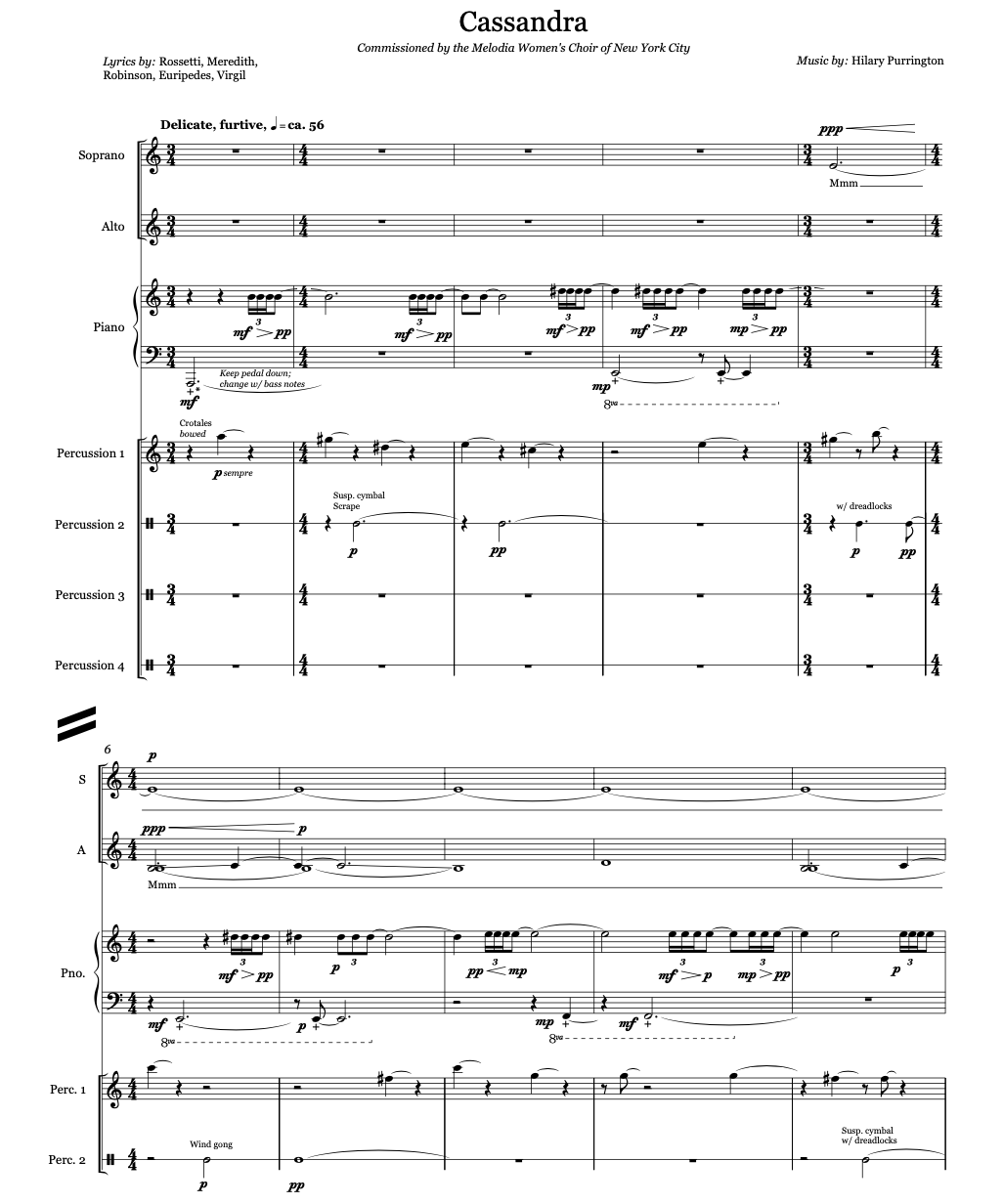Cassandrafor treble choir, percussion quartet, and piano
Length: ca. 12' Voicing: SSAA; occasional divisi Required percussion: Crotales, tom-toms (1 large, 1 small), cowbell, opera gong (muffled), suspended cymbal, wind gong, tam-tam (medium), bass drum, triangle, snare drum. Availability: PDFs available for purchase. |
Text |
Excerpts from The Trojan Women, Euripedes; "Cassandra," Edwin Arlington Robinson; The Aeneid, Virgil; "Cassandra," George Meredith.
|
Program Note |
Cassandra was commissioned in 2015 by the Melodia Women’s Choir of New York City. As a female composer writing for a women’s choir, I found it fitting to create a work that tells a story about an extraordinary woman. I have always been fascinated by Roman and Greek mythology, and I chose to gather multiple texts that together relate the tragedy of the Trojan princess Cassandra.
According to myth, Cassandra was one of the most beautiful women in the world, second only to Helen of Troy. The god Apollo, hoping to seduce the princess, made her his priestess and gave her the gift of prophecy. When Cassandra refused him, he cursed her so that no one would believe a word she said. Thereafter, the Trojans viewed her as a madwoman, and she lived a life of isolation and misery. Following the destruction of Troy, Cassandra was captured by the Greeks and made the concubine of Agamemnon, king of Mycenae and commander of the united Greek army. Upon reaching Mycenae, Agamemnon’s wife, Clytemnestra, murdered Cassandra in a jealous rage. We don’t know if the princess actually existed, but I wonder—if we strip away the supernatural elements of Cassandra’s story, what was actually “wrong” with her, if anything? I like to imagine her as formidably intelligent and outspoken, an extraordinary woman millennia ahead of her time. |
Premiere
|
Commissioned by Melodia Women's Choir of NYC; premiered in spring 2017.
|
Recording |
